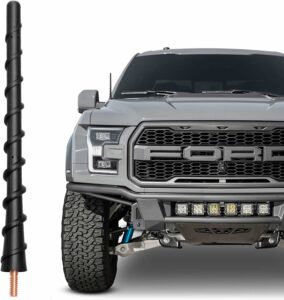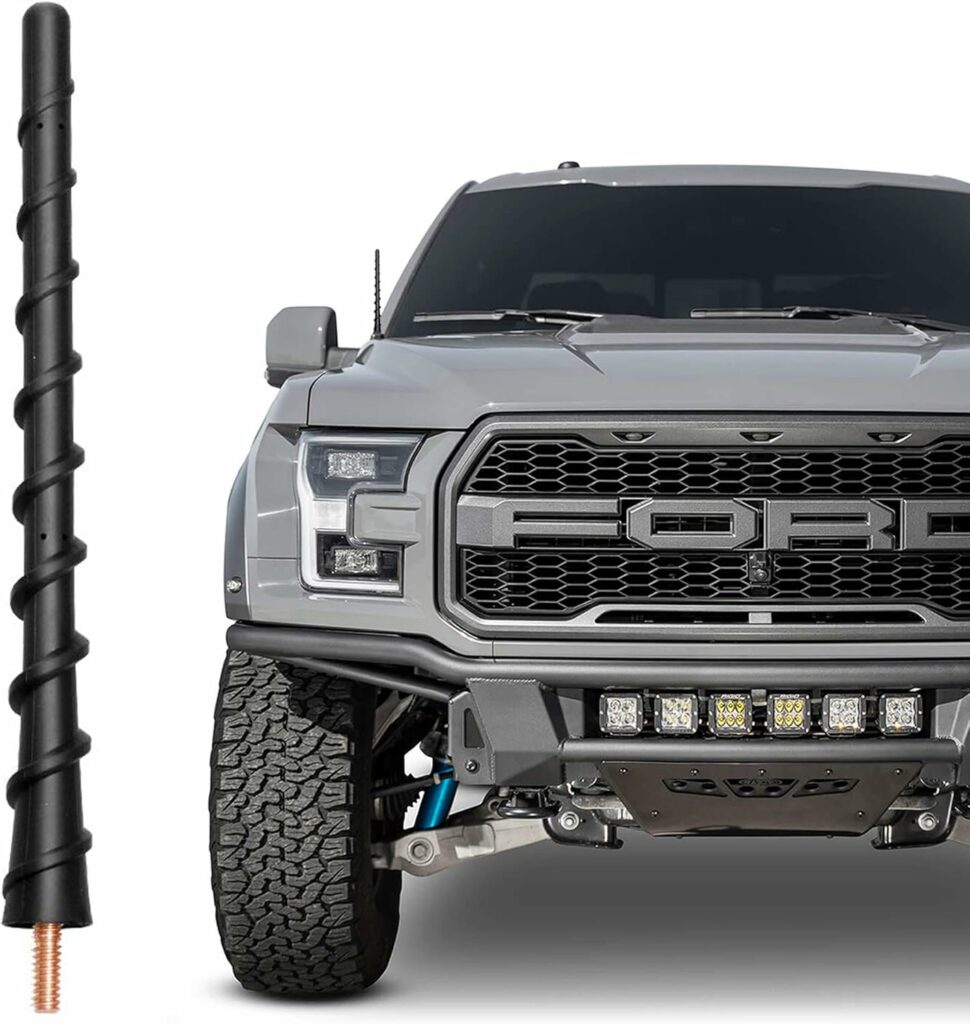What Is the Best Antenna to Use on the Ford F-150? Advantages and Disadvantages
When it comes to enhancing your Ford F-150’s performance and aesthetics, choosing the right antenna is crucial. Whether you’re looking for improved reception, a sleek design, or both, there are several options available. In this blog post, we’ll explore the best antennas for your F-150, along with their advantages and disadvantages.

1. Factory Antenna
Overview: The factory antenna that comes with your F-150 is designed to provide adequate reception for radio signals and, in some cases, GPS.
Advantages:
- Optimized for Vehicle: Tailored to your specific model, ensuring compatibility.
- Integrated Design: Typically blends well with the overall look of the truck.
- Reliability: Designed to meet manufacturer standards, providing consistent performance.
Disadvantages:
- Limited Range: May not provide the best reception compared to aftermarket options.
- Less Stylish: Some may find the factory design to be less visually appealing.
2. Short Antenna
Overview: Short antennas, often made of flexible materials, provide a compact alternative to the traditional long antenna.
Advantages:
- Sleek Appearance: Enhances the truck’s look by giving it a more modern and aggressive profile.
- Reduced Wind Noise: Shorter antennas generally produce less wind resistance, leading to a quieter ride.
- Less Likely to Break: Their shorter length makes them less vulnerable to damage from branches or low overhangs.
Disadvantages:
- Reduced Reception: May not capture signals as effectively as longer antennas, especially in rural areas.
- Limited Functionality: Some short antennas may only work for AM/FM radio and not for other signals like GPS or satellite radio.
3. Aftermarket Long Antenna
Overview: Long aftermarket antennas can significantly improve radio reception and are often designed for specific needs.
Advantages:
- Superior Reception: Longer antennas tend to provide better reception, especially in remote areas.
- Versatile Options: Many aftermarket antennas support a range of frequencies, including AM, FM, and satellite radio.
Disadvantages:
- Bulky Design: The length can detract from the vehicle’s aesthetics and make it more susceptible to damage.
- Increased Wind Noise: Longer antennas can create more drag, potentially leading to a noisier ride.
4. Retractable Antenna
Overview: Retractable antennas extend when in use and retract when not needed, offering versatility.
Advantages:
- Space-Saving Design: Can be retracted when not in use, preserving the truck’s streamlined look.
- Enhanced Reception: When extended, they can provide good reception similar to longer antennas.
Disadvantages:
- Mechanical Issues: The retractable mechanism may wear out over time, leading to malfunctions.
- Installation Complexity: May require professional installation, adding to the overall cost.
Conclusion
Choosing the best antenna for your Ford F-150 depends on your priorities—whether it’s reception quality, aesthetics, or practicality. The factory antenna is a reliable choice for everyday use, while short antennas provide a stylish upgrade. For superior performance, aftermarket long antennas are hard to beat, although they may come with their own set of challenges. Retractable antennas offer a unique solution, but be mindful of potential mechanical issues.
Ultimately, consider your specific needs and preferences when selecting an antenna. A well-chosen antenna not only enhances your truck’s functionality but can also improve its overall look. Happy driving!
